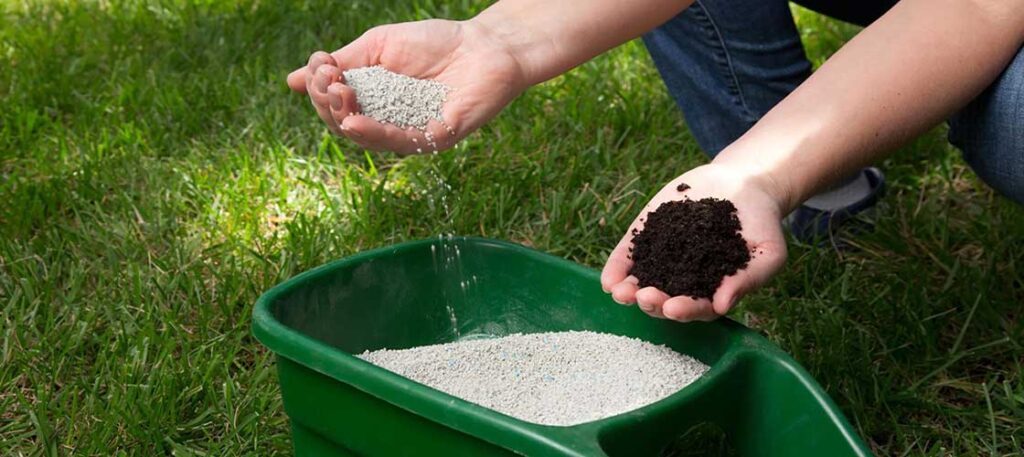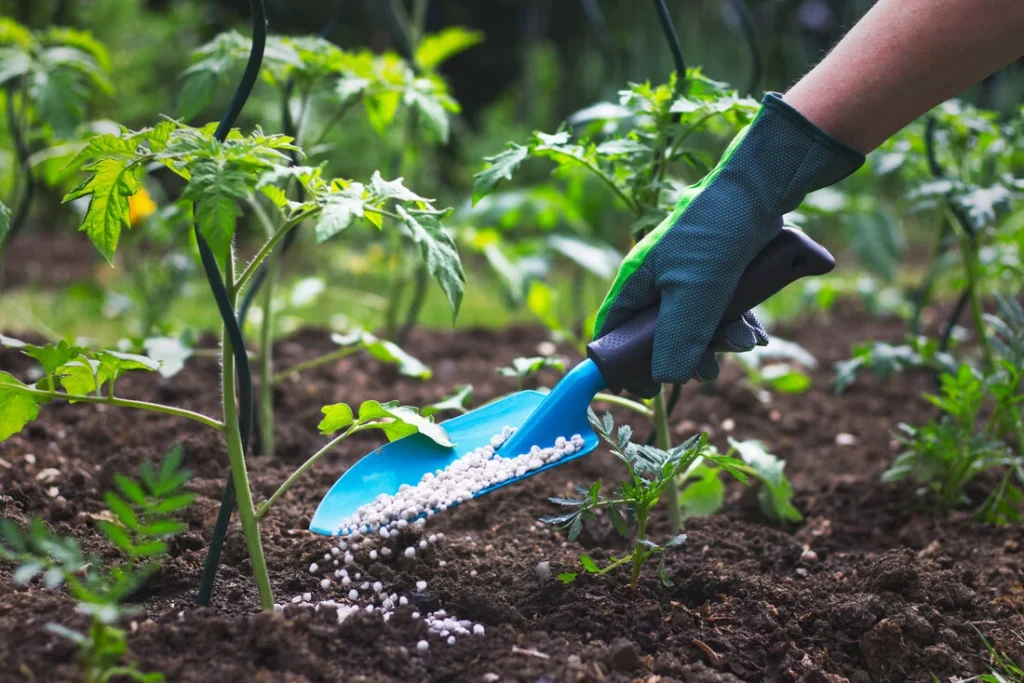Fertilization Services play an essential role in modern agriculture, where demand for increased productivity and sustainability continues to surge. Fertilizers provide essential nutrients that nourish crops for optimum growth and development. In this article, we’ll examine their significance, types, applications methods, environmental impacts and future trends impacting this vital aspect of farming.
Importance of Fertilization Services:
Fertilization services are essential to agricultural productivity for various reasons:
Fertilizers Provide Nutrients:
Fertilizers supply essential plant growth-promoting nutrients like nitrogen, phosphorus, and potassium that can often be lacking in soil. Fertilization replenishes them so as to promote healthy crop development.
Fertilizer Results in Increased Yield:
Adopting best fertilization practices leads to increased crop yields by providing plants with the necessary nutrients they require to reach their full potential, which is especially essential given the growing global food demand.
Soil Health:
Fertilizers not only support crop growth, but they can also contribute to improving soil health by increasing fertility and structure. A fertilized soil can better retain moisture, support beneficial microbe activity, and sustain long-term productivity.
Economic Viability:
Fertilization services help farmers maximize input costs by applying nutrients efficiently. Higher yields and improved crop quality contribute to greater profits and economic sustainability for farmers.
Types of Fertilizers:
Fertilizers come in various forms, each designed to deliver specific nutrients directly to plants:
Nitrogen Fertilizers:
Nitrogen fertilizers such as urea, ammonium nitrate and ammonium sulfate provide essential nitrogen nutrients that promote vegetative growth in plants.
Phosphorus Fertilizers:
Phosphorus fertilizers provide plants with readily available phosphorus for optimal root development, flowering and fruiting. Products like triple superphosphate and diammonium phosphate ensure plants can access all the phosphorus they require for maximum growth.
Potassium Fertilizers:
Potassium fertilizers such as potassium chloride and potassium sulfate supply plants with this essential nutrient to ensure overall plant health, such as water regulation, disease resistance and nutrient uptake.
Micronutrient Fertilizers:
Plants require more than just nitrogen, phosphorus and potassium as essential nutrients; they also need trace amounts of micronutrients such as iron, zinc and manganese for proper functioning of various physiological processes. Micronutrient fertilizers can help address deficiencies of these essential trace elements for healthy plant growth.

Application Methods for Fertilizers:
Fertilizers and lawn Aeration can be applied using various techniques depending on factors like crop type, soil conditions and equipment availability:
Broadcast Application:
Broadcast fertilizers are spread evenly over the soil surface using broadcast spreaders, creating efficient nutrient distribution. This method works best when crop fields cover large areas.
Band Application:
Fertilizers can be applied in bands or rows near plant roots to maximize targeted nutrient placement while minimizing fertilizer wastage, making this technique especially popular among row crops such as corn and soybeans.
Foliar Application:
Foliar fertilizers are applied directly onto plant leaves through water-saturated spray bottles, providing micronutrients or correcting deficiencies quickly during critical growth stages. Foliar application often plays an important role in providing micronutrients quickly or correcting deficiencies quickly.
Drip Irrigation:
Fertilizer can be introduced directly into irrigation systems through drip irrigation for delivery directly to plant roots, providing more precise application and water management that makes this method an excellent option for high-value crops grown under controlled conditions.
Environment Impacts:
While fertilization services are essential to agricultural productivity, improper use can have negative environmental implications:
Nutrient Runoff:
Applying too much fertilizer to fields can pollute local waters with excess nutrients, leading to their deposition in aquatic environments and contributing to algal blooms. Nutrient runoff can seriously deteriorate water quality while also harming aquatic ecosystems and contributing to algal blooms.
Air Pollution:
Some nitrogen fertilizers can release ammonia into the atmosphere and contribute to air pollution and greenhouse gas emissions, impacting human health and the environment in a number of ways. Furthermore, ammonia emissions can lead to particulate matter formation and smog formation which further contaminate both bodies of air and bodies of water resulting in particulate matter and smog formation affecting both people’s wellbeing and the planet.
Soil Degradation:
Over-relying on chemical fertilizers can disrupt soil microbial communities, reduce fertility and degrade soil structure over time – leading to erosion, reduced water infiltration and loss of biodiversity. Soil degradation has significant ramifications including erosion, decreased infiltration of rainfall water into the groundwater table, as well as loss of biodiversity in the form of reduced biodiversity and biodiversity loss.
Climate Change:
Fertilizer production and use contribute significantly to greenhouse gas emissions, including nitrous oxide released during their application and soil microorganism breakdown processes that release it during soil mixing processes. Nitrous oxide is a potent greenhouse gas, contributing significantly to global warming and climate change.
Future Trends of Fertilization Services:
With agriculture continually developing, several trends are shaping its future – these include fertilization services.

Precision Agriculture:
Advancements in technology such as GPS guidance systems, drones and sensor technologies have allowed farmers to implement precision agriculture practices. Utilizing targeted fertilizer application based on site-specific soil and crop conditions allows for optimized use efficiency while mitigating any environmental impacts.
Sustainable Fertilizer Solutions:
There has been increasing interest in creating and promoting environmentally-friendly fertilizer alternatives such as organic, bio-based and slow release fertilizers as alternatives to synthetic ones that promote soil health while mitigating any associated environmental risks. These alternatives reduce dependence on synthetics while simultaneously mitigating any possible risks to human health or the environment.
Nutrient Management Strategies:
Integrated nutrient management approaches such as soil testing, nutrient modeling and crop rotation are becoming increasingly crucial to optimizing fertilizer use efficiency and limiting fertilizer losses. By adopting holistic approaches to nutrient management, farmers can increase productivity while simultaneously decreasing environmental impacts.
Climate-Sensitive Agriculture:
Climate-smart agriculture practices aim to strengthen agricultural resilience to climate change while decreasing greenhouse gas emissions. Fertilizer management techniques like controlled release fertilizers, cover cropping, and conservation tillage play an integral part in climate-smart agriculture by improving soil carbon sequestration and decreasing nitrogen loss.
Conclusion:
Fertilization services are essential components of sustainable agriculture, providing plants with essential nutrients they require for maximum growth and productivity. At the same time, their responsible use must be prioritize to reduce environmental impacts such as nutrient pollution. Air pollution and soil degradation.
By adopting innovative technologies, sustainable practices and integrated nutrient management approaches. That safeguard future generations’ environment while still increasing agricultural productivity, lawn fertilization and weed control near me will continue to evolve in response to shifting agricultural landscapes and global challenges – playing an essential part in feeding a growing population while conserving natural resources.
Transform Your Garden with My Yard Ninja
Get the best fertilization services with My Yard Ninja and transform your garden into a lush, vibrant oasis! Our expert team is dedicated to providing top-notch fertilization solutions tailored to your lawn’s specific needs. Say goodbye to patchy grass and hello to a healthy, thriving yard. Contact us today to schedule your fertilization service and unleash the full potential of your outdoor space!

